PG Diploma in Embedded & Automotive System
100% JOB Assured with Globally Accepted Certificate
Intermediate
PG Diploma in Embedded & Automotive System
100% JOB Assured with Globally Accepted Certificate
Overview
Embedded System Course Online for Working Professional
Description
Embedded System Course Online for Working Professional
Transitioning from a non-core domain to the core embedded domain or upskilling within core domain as a working professional requires careful planning, proactive learning, and a strategic approach. The best way to facilitate this transition is to Identify Core Embedded Skills, Acquire Relevant Knowledge, Participate in Projects and Practical Exercises, and Industry connect.
The Job Assured Embedded Systems Training Program at Cranes Varsity in Bangalore recognizes the unique challenges faced by working professionals and offers flexible learning options to accommodate their schedules. Whether attending classes on weekends or through online platforms, participants can balance their work commitments while upgrading their skills.
Embedded Systems Design Course – Begin Your Learning Journey Today
The Placement Assured Embedded Systems Design Course Program at Cranes Varsity ensures a smooth transition from learning to employment in both online and offline courses. Upon enrollment, you will receive comprehensive training in Programming in C, Linux, embedded systems, RTOS development automotive systems, and model-based development using Matlab and Simulink. Additionally, you will learn SDLC, Devops and Testing. Our curriculum focuses on industry-relevant skills and hands-on experience through practical sessions and capstone projects.
Our dedicated career development sessions, resume building assistance, and interview preparation help you to enhance your employability. Our strong industry connections and collaborations enable us to provide job placement assistance, connecting you with top companies in the automotive sector. We take pride in our high placement record and strive to help you kick-start a successful career in embedded and automotive systems.
Project stream:
- Application development based on Data Structure (Eg: Flood fund releasing data, cyber management systems, Bank management system, contact management system)
- Concurrent server to replicate a chat application using socket programming.
- Embedded Project development using wired/wireless technology such as GPS, GSM, BLE, Wi-Fi, and sensors
- Project Based on CAN or Lin Protocol
- Parallel port Driver.
Embedded System Course Online for Working Professional
Transitioning from a non-core domain to the core embedded domain or up skilling within core domain as a working professional requires careful planning, proactive learning, and a strategic approach. The best way to facilitate this transition is to Identify Core Embedded Skills, Acquire Relevant Knowledge, Participate in Projects and Practical Exercises, and Industry connect.
Embedded Systems Training Program – Start Learning Today
The Job Assured Embedded Systems Training Program at Cranes Varsity recognizes the unique challenges faced by working professionals and offers flexible learning options to accommodate their schedules. Whether attending classes on weekends or through online platforms, participants can balance their work commitments while upgrading their skills. The Placement Assured Program for PG Diploma in Embedded and Automotive Systems at Carnes Varsity ensures a smooth transition from learning to employment. Upon enrollment, you will receive comprehensive training in Programming in C, Linux, embedded systems, RTOS development automotive systems, and model-based development using Matlab and Simulink. Additionally, you will learn SDLC, Devops and Testing. Our curriculum focuses on industry-relevant skills and hands-on experience through practical sessions and capstone projects.
Our dedicated career development sessions, resume building assistance, and interview preparation help you to enhance your employability. Our strong industry connections and collaborations enable us to provide job placement assistance, connecting you with top companies in the automotive sector. We take pride in our high placement record and strive to help you kick-start a successful career in embedded and automotive systems.
Get industrial-grade training with Cranes
The Professional Graduate PG Diploma in Embedded and Automotive Systems is a five-month professional programme that expands knowledge and comprehension of embedded systems.
Cranes provide training on Embedded and Automotive systems in all essential disciplines so that engineers can design and develop industry-standard embedded system-based applications. We now have a broader range of hardware and software platforms, as well as programming languages, to choose from.
Cranes Varsity also offers Embedded Systems Course Online, which aims at building strong Embedded professionals in the industry. The course will start with basic programming to Data Structures, C++, and Linux. Once the student is comfortable in programming, he/she will be introduced to Hardware modules where they will be learning on developing programs on ARM Cortex7. The students will also work on AUTOSAR and finally develop modules using MATLAB. The placement process will start from the third month of the training and students will get 100% Placement opportunities in Top Core Domain companies like Robert Bosch, L&T Technology Services, Tata Elxsi, Capgemini, Mahindra electric, Ola electric, Continental Automotive, ZF Technology, Great Wall Motors, Man Trucks India Pvt Ltd, Mphasis, Western digital, etc.
Embedded Systems Online Course – Start Learning Today
Experience world-class training at Cranes Varsity, a pioneer in technical pieces of training and educational services.
Cranes Varsity provides graduate training through the Finishing School Model, industry-connected university programs, upskilling programs for working professionals, and customized training for the corporate and defense sectors. We bridge the gap between graduates’ abilities and employers’ expectations. We interact with Corporate as a trusted recruitment partner for the “Hire, Train, and Deploy” model.
EEE – Educate, Evolve, Employment – is our Learning Approach Model. We consistently strive for our participants’ pleasure and placement commitment through concentrated Training by our Subject-Matter Experts and Professionals. “We Assist Until We Place,” is our company mantra.
Being a pioneer in Embedded Systems training our admission process at Cranes Varsity is rigorous. Our counselors allow the working professionals to express their interest in training programs. Through a thorough understanding of the working professionals, the counselor guides them through the technical programs & placement opportunities. The course curriculum is designed at Cranes Varsity and is in connection with the Corporate industry for Embedded Systems courses online for working professionals.
This makes it feasible for all the working professionals to enhance their skills to the next level.
We continue with our support to working professionals in providing placement opportunities.
Embedded Systems Training and hands-on project experience prepare students to grow as skilled Embedded Engineers in the industry. Embedded, Matlab, Python, and more projects are available. Check the syllabus of the curriculum for more details on Modules and Projects.
Embedded Systems Training Course Modules
- Fundamentals of Electronics and Embedded Systems
- Programming in C following MISRA C
- Data Structures and Algorithms
- Oops with C++
- Linux System Programming and Socket Programming
- ARM 7 & Cortex M3 programming using Embedded C
- Programming using ARM Cortex M3 based MCU STM32F446
- RTOS – Hands-on using Free RTOS of Amazon
- Linux Device Drivers and Porting on Beagle Bone Black
- Communication Protocols – UART, SPI, I2C
- Autosar Design Flow using CAN, CAN Analyzer, LIN
- Model-Based Design using Matlab & Simulink
- Application development based on Data Structure (Eg: Flood fund releasing data, cyber management systems, Bank management system, contact management system)
- Concurrent server to replicate a chat application using socket programming
- Embedded Project development using wired/wireless technology such as GPS, GSM, BLE, Wi-Fi, and sensors
- Project-Based on CAN or Lin Protocol
- Parallel port Driver
- Ubuntu(Linux OS, with GCC compiler)
- LPC2129, Keil Micro vision
- Cube IDE for STM32F446
Embedded Systems Course Content
- Introduction to Embedded System
- Electrostatic Discharge Essentials
- Fundamentals of Booting for Embedded Processors
- Securing Embedded Systems
- SDLC – Development Life cycles and Frameworks
- Agile – an iterative and responsive software development methodology
- Development Bible
- Development and Operations
- Embedded Testing
- IoT Security
- Introduction to C
- Data types and Operators
- Conditional Statements
- Loop Control Structures
- Modular Programming using Functions
- Storage Classes
- Working with Multiple Files
- Preprocessor
- Conditional Inclusion
- Arrays
- Strings
- GDB Debugger
- Introduction to the operating system
- Text Editors: Vim and gedit
- Finding Linux Documentation
- System Navigation command
- Manipulating Data
- Process Related commands Filtering
- Shell scripting
- Input and output
- Arithmetic Expression
- Decision making
- Looping Constructs
- Introduction to ARM Processor
- GPIO- General Purpose
- Input output
- LCD programming
- ADC Programming
- Timers
- Counters
- Building an executable
- Debugging & Tracing
- Memory Management
- Advanced Data Types
- Referencing data and function
- Working with registers
- Context management
- Linux fundamentals
- C library functions
- Coding practices
- Introduction to Python
- Python Data types and Conditions
- Control Statements
- Python Functions
- Default arguments
- Functions with variable number of args
- Scope of Variables
- Global Specifier
- Working with multiple files
- List and Tuple
- List Methods
- List Comprehension
- Map and filter functions String
- Set and Dictionary
- Fundamentals of testing Testing Throughout the Software Development Lifecycle
- Static Techniques
- Test techniques
- Test Infrastructure
- Test Monitoring & Control
- Embedded Specialization
- VIC- Interrupt programming
- KEYPAD programming DAC programming
- PWM programming
- PLL programming
- RTC and WDT programming
- UART programming
- I2C programming
- SPI programming
- Introduction to STM32F411 RE Microcontroller
- GPIO Programming on STM32
- UART
- Programming on STM32
- Timer Programming on STM32
- Interrupt Programming on STM32
- Introduction to the device driver Char driver
- Advanced char driver operations
- Linux Kernel Build and static Linking
- Flow of time
- Interrupt handling
- Introduction to BBB Board & SOC
- AM335xFunctional block and overview
- U-BOOT Mechanism & BEAGLE BONEeMMC
- RT Systems–Architecture
- Introduction to tasks- Task internals, Task Scheduling, CAN layered architecture Real-Time Task Management
- State transition Diagramming Free RTOS Schedulers
- Inter task Synchronization
- Introduction to semaphores, types (Binary and Mutex)
- Programming with Semaphores
- Memory management
- Strategies of Memory Management Memory Allocation/De-allocation
- Inter task Communication Message Qs, Pipes, Shared Memory – pros &cons
- Introduction to Free RTOS Message Queues Programming with Message Queues
- Interrupt Handling Overview of Interrupts
- Overview of DevOps
- Version Control with Git
- Packaging, Release and Continuous Integration
- Automotive Specialization
- Automotive Systems Overview
- Automotive System Design with CAN and Without CAN
- ECU Design Automotive Microcontroller.
- CAN Bus levels, CAN Communication Principle CAN layer architecture.
- NRZ Coding, Bit Stuffing
- CAN network Design.
- CAN Frame
- Timing and Synchronization CRC Calculation CSMA-CD, CAN Arbitration
- CAN Frame Analysis Using CAN- BUSMASTER Analyzer AUTOSAR Layer Architecture
- Introduction to MATLAB- Data Types, Addressing Techniques,
- linear Equation Creating and manipulating matrices- Data Visualization-2D and 3D plots, Digital image processing,
- Programming in MATLAB
- Graphical User Interface
- Introduction to Model-Based Design
- Logic Driven Modeling Finite state machines
- Introduction to Sims cape
- Introduction to Embedded System
- Electrostatic Discharge Essentials
- Fundamentals of Booting for Embedded Processors
- Securing Embedded Systems
- SDLC – Development Life cycles and Frameworks
- Agile – an iterative and responsive software development methodology
- Development Bible
- Development and Operations
- Embedded Testing
- IoT Security
- Introduction to C
- Data types and Operators
- Conditional Statements
- Loop Control Structures
- Modular Programming using Functions
- Storage Classes
- Working with Multiple Files
- Preprocessor
- Conditional Inclusion
- Arrays
- Strings
- GDB Debugger
- Introduction to the operating system
- Text Editors: Vim and gedit
- Finding Linux Documentation
- System Navigation command
- Manipulating Data
- Process Related commands Filtering
- Shell scripting
- Input and output
- Arithmetic Expression
- Decision making
- Looping Constructs
- Introduction to ARM Processor
- GPIO- General Purpose
- Input output
- LCD programming
- ADC Programming
- Timers
Counters
- Building an executable
- Debugging & Tracing
- Memory Management
- Advanced Data Types
- Referencing data and function
- Working with registers
- Context management
- Linux fundamentals
- C library functions
- Coding practices
- Introduction to Python
- Python Data types and Conditions
- Control Statements
- Python Functions
- Default arguments
- Functions with variable number of args
- Scope of Variables
- Global Specifier
- Working with multiple files
- List and Tuple
- List Methods
- List Comprehension
- Map and filter functions String
- Set and Dictionary
- Fundamentals of testing Testing Throughout the Software Development Lifecycle
- Static Techniques
- Test techniques
- Test Infrastructure
- Test Monitoring & Control
- Embedded Specialization
- VIC- Interrupt programming
- KEYPAD programming DAC programming
- PWM programming
- PLL programming
- RTC and WDT programming
- UART programming
- I2C programming
- SPI programming
- Introduction to STM32F411 RE Microcontroller
- GPIO Programming on STM32
- UART
- Programming on STM32
- Timer Programming on STM32
- Interrupt Programming on STM32
- Introduction to the device driver Char driver
- Advanced char driver operations
- Linux Kernel Build and static Linking
- Flow of time
- Interrupt handling
- Introduction to BBB Board & SOC
- AM335xFunctional block and overview
- U-BOOT Mechanism & BEAGLE BONEeMMC
- RT Systems–Architecture
- Introduction to tasks- Task internals, Task Scheduling, CAN layered architecture Real-Time Task Management
- State transition Diagramming Free RTOS Schedulers
- Inter task Synchronization
- Introduction to semaphores, types (Binary and Mutex)
- Programming with Semaphores
- Memory management
- Strategies of Memory Management Memory Allocation/De-allocation
- Inter task Communication Message Qs, Pipes, Shared Memory – pros &cons
- Introduction to Free RTOS Message Queues Programming with Message Queues
- Interrupt Handling Overview of Interrupts
- Overview of DevOps
- Version Control with Git
- Packaging, Release and Continuous Integration
- Automotive Specialization
- Automotive Systems Overview
- Automotive System Design with CAN and Without CAN
- ECU Design Automotive Microcontroller.
- CAN Bus levels, CAN Communication Principle CAN layer architecture.
- NRZ Coding, Bit Stuffing
- CAN network Design.
- CAN Frame
- Timing and Synchronization CRC Calculation CSMA-CD, CAN Arbitration
- CAN Frame Analysis Using CAN- BUSMASTER Analyzer AUTOSAR Layer Architecture
- Introduction to MATLAB- Data Types, Addressing Techniques,
- linear Equation Creating and manipulating matrices- Data Visualization-2D and 3D plots, Digital image processing,
- Programming in MATLAB
- Graphical User Interface
- Introduction to Model-Based Design
- Logic Driven Modeling
- Finite state machines
- Introduction to Sims cape
Generic:
Electronics and Embedded Hardware Familiarization – 08 Days
- Introduction to Embedded System
- Securing Embedded Systems
- Electrostatic Discharge Essentials
- Fundamentals of Booting for Embedded Processors
SDLC – 04 Days
- SDLC – Development Life cycles and Frameworks
- Development and Operations
- Agile – an iterative and responsive software development methodology
- Embedded Testing
- Development Bible
- IoT Security
Programming in C following MISRA C – 12 days
- Introduction to C
- Loop Control Structures
- Working with Multiple Files
- Arrays
- Data types and Operators
- Modular Programming using Functions
- Preprocessor
- Strings
- Conditional Statements
- Storage Classes
- Conditional Inclusion
- GDB Debugger
Linux Commands & Shell Scripting – 04 days
- Introduction to the operating system
- System Navigation command
- Shell scripting Input and output
- Text Editors: Vim and gedit
- Manipulating Data
- Arithmetic Expression
- Finding Linux Documentation
- Process Related commands Filtering
- Decision making Looping Constructs
LPC/ARM Cortex M3 Programming using Embedded C – 04 days
- Introduction to ARM Processor
- ADC Programming
- GPIO- General Purpose Input output
- Timers
- LCD programming
- Counters
System Programming using C – 08 Days
- Building an executable
- Advanced Data Types
- Context management
- Coding practices
- Debugging & Tracing
- Referencing data and function
- Linux fundamentals
- Memory Management
- Working with registers
- C library functions
Basic Python Programming – 04 days
- Introduction to Python
- Python Functions
- Scope of Variables
- List and Tuple
- Map and filter functions
- ADC Programming
- Python Data types and Conditions
- Default arguments
- Global Specifier
- List Methods
- String
- Timers
- Control Statements
- Functions with variable number of args
- Working with multiple files
- List Comprehension
- Set and Dictionary
- Counters
Verification & Validation – 04 days
- Fundamentals of testing
- Test techniques
- Testing Throughout the Software Development Lifecycle
- Test Infrastructure
- Static Techniques
- Test Monitoring & Control
Embedded Specialization:
ARM Bare Metal Programming (ARM Cortex)- 10 Days
- VIC- Interrupt programming
- PWM programming
- UART programming
- KEYPAD programming
- PLL programming
- I2C programming
- DAC programming
- RTC and WDT programming
- SPI programming
ARM Bare Metal Programming (STM) – 05 Days
- Introduction to STM32F411 RE Microcontroller
- Timer Programming on STM32
- GPIO Programming on STM32
- Interrupt Programming on STM32
- UART Programming on STM32
Linux Device Driver With Beagle bone – 09 Days
- Introduction to the device driver
- Linux Kernel Build and static Linking
- Introduction to BBB Board & SOC
- Char driver
- Flow of time
- AM335xFunctional block and overview
- Advanced char driver operations
- Interrupt handling
- U-BOOT Mechanism & BEAGLE BONEeMMC
Embedded OS (RTOS) Programming – 08 days
- RT Systems–Architecture Introduction to tasks- Task internals, Task Scheduling, CAN layered architecture
- Memory management Strategies of Memory Management, Memory Allocation/Deallocation
- Real-Time Task Management State Transition Diagramming, Free RTOS Schedulers, Inter task Synchronization
- Inter task Communication, Message Qs, Pipes, Shared Memory – pros & cons
- Introduction to semaphores, types (Binary and Mutex) Programming with Semaphores
- Introduction to Free RTOS Message, Queues Programming with Message Queues Interrupt Handling Overview of Interrupts
DevOps for Embedded Software Development– 04 days
- Overview of DevOps
- Version Control with Git
- Packaging, Release and Continuous Integration
Automotive Specialization:
Automotive Protocols &Autosar Architecture – 08 days
- Automotive Systems Overview Automotive System Design with CAN and Without CAN
- CAN Frame
- ECU Design Automotive Microcontroller. CAN Bus levels, CAN Communication Principle CAN layer architecture
- Timing and Synchronization CRC CalculationCSMA-CD, CAN Arbitration
- NRZ Coding, Bit Stuffing CAN network Design.
- CAN Frame Analysis Using CAN- BUSMASTER Analyzer AUTOSAR Layer Architecture
MBD for Autosar Model Deployment using Matlab & Simulink – 08 days
- Introduction to MATLAB- Data Types, Addressing Techniques, linear Equation
- Programming in MATLAB
- Logic Driven Modeling
- Creating and manipulating matrices
- Graphical User Interface
- Finite state machines
- Data Visualization-2D and 3D plots, Digital image processing
- Introduction to Model-Based Design
- Introduction to Sims cape
Hiring Partners


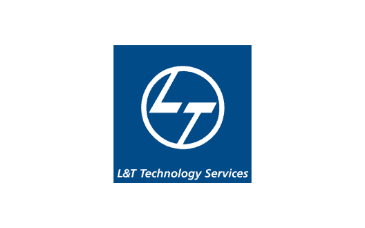
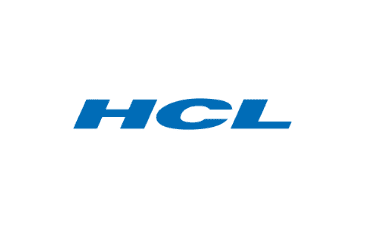

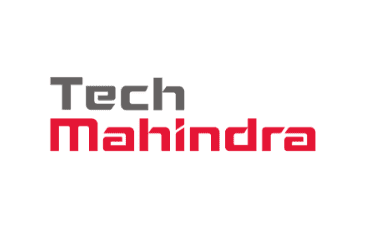
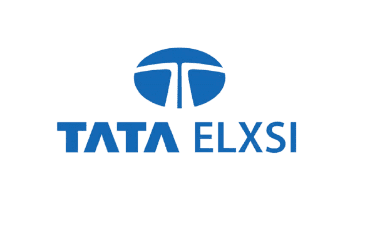
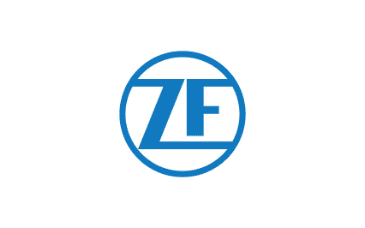

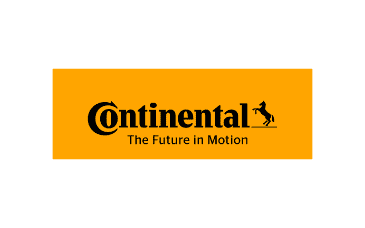
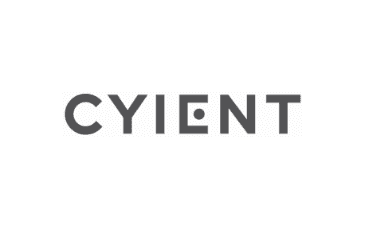

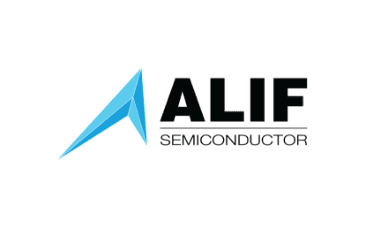
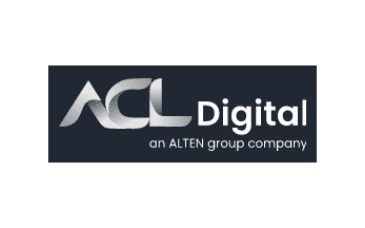

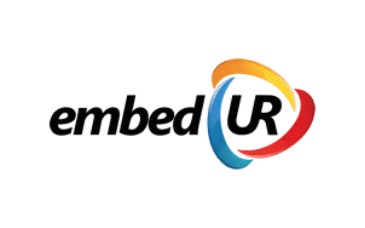

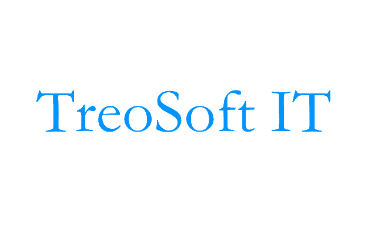


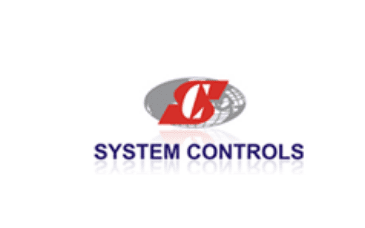
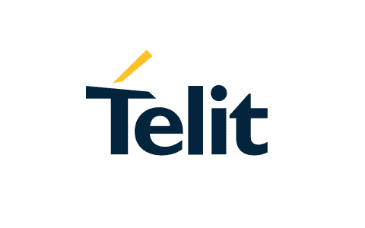


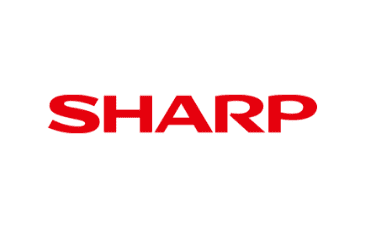

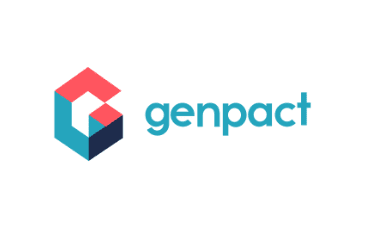
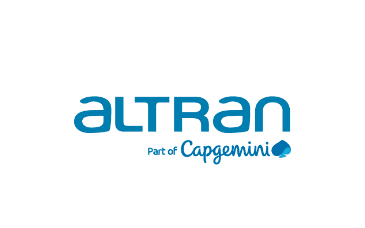
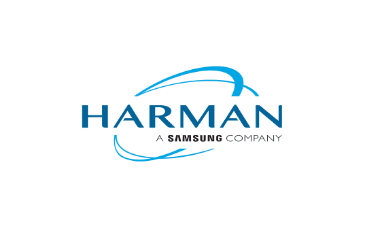

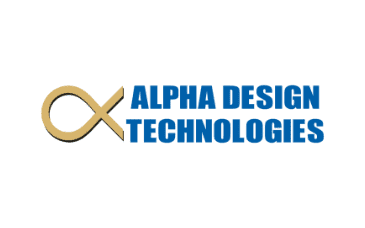
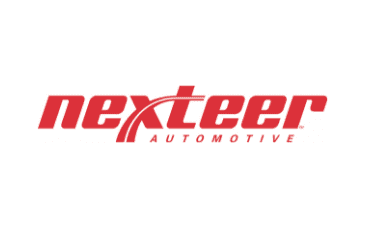

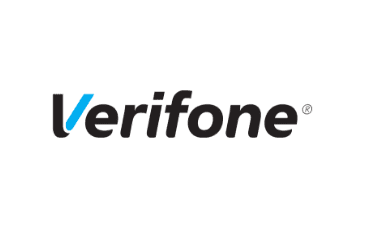




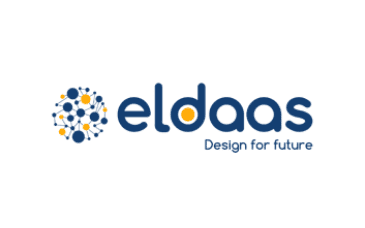
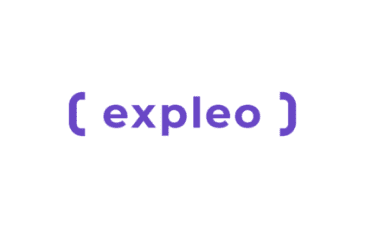
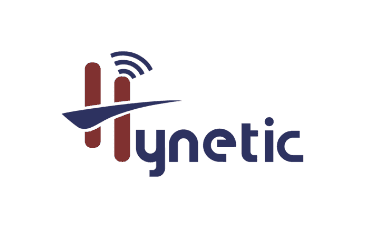
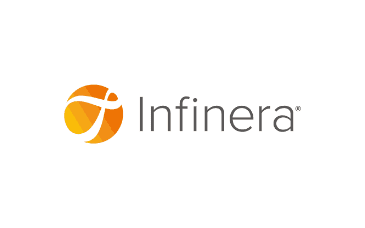
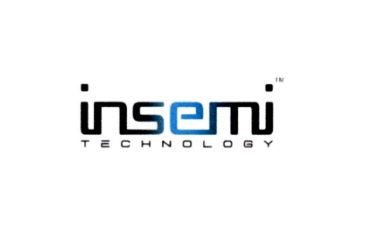
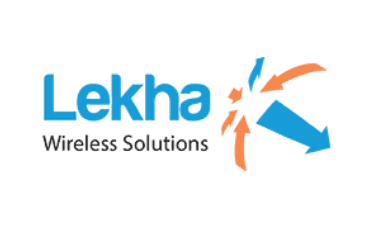

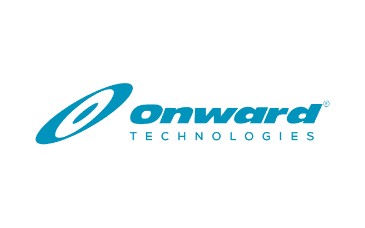

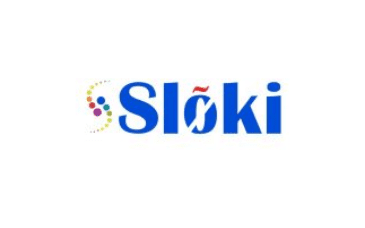
Embedded Systems Course FAQs
Can I learn Embedded Systems online?
Yes…. You can learn to complete Embedded Systems Course online. With a proper mixture of theoretical learning, hands-on sessions, assignments, and special sessions makes learning very engaging and effective.
Cranes Embedded Systems Trainer Expertise?
One of the defining factors behind Cranes Varsity’s success has been its dedicated in-house Technical Team; A rich and diverse team with many years of expertise in Research & Development, System Design & Validation, Project Development, Optimization, Debugging & Testing.
Alongside, Industry consultants & subject matter experts are engaged by Cranes to provide practical insights and trends into project requirements, designing, coding standards & testing.
Which all companies work on the Embedded System?
Some of the companies that work on embedded Systems (Our recruiters):
UTC Aerospace
MaxVega Networks
Easun Reyrolle
Lekha Wireless
Esterline Technologies
Danlaw Technologies
Autoliv India
MosChip Semiconductor
Hyundai Mobis India
Continental Automotive
Tech Mahindra
Procsys
Safran Engineering
American Megatrends
CYIENT
GE Healthcare
Wipro
Sony
Delphi
Safran
L&T
HCL
Huawei
Siemens
Tata Elxsi
Mindtree
Verifone
Harman
Audience Comm
Sharp Software
Robert Bosch
AK Aerotek and many more.
In which domain, Embedded Systems offer job opportunities?
Medical Electronics
Aerospace
Automotive
Defence
Consumer Electronics
Home appliances
Telecommunication
Industrial machine
Aero Space
Agriculture
Are there course materials for Embedded Training?
Yes, we provide Embedded Systems Course material along with a workbook for each module.
What is Embedded Systems?
An Embedded System is a combination of computer hardware and software, either fixed in capability or programmable, that is designed for a specific function or functions within a larger system.
Who can take up the Embedded Systems Design Course?
Working Professionals with a background of BE / B.Tech in ECE / CSE/ISE/Electrical & Electronics / Biomedical / Instrumentation / Msc Electronics and any other relevant streams.
Why should I join Embedded Systems Training in Cranes Varsity, Bangalore?
Cranes Varsity is the Best Embedded Systems Training Institute in Bangalore, as we are a pioneer in Technical Training & Education services with over 20 years of acclaimed expertise. Check the following fact sheet about Cranes Varsity.
- Over 20 years of qualified training experience
- Trained over 1 million engineering graduates
- 500+ companies with over 50,000+ Cranes Alumnae
- State-of-the-art Infrastructure with well Equipped Labs
- 20000+ Corporate & Defence professional trained
- Partnership with Global Leaders
- 40+ Experienced Trainers & Consultants Equipped with Skills of Industry Demand
What is the Regular Batch Size of Embedded Course at Cranes?
The batch size is limited to 30 students to ensure a closer learner-faculty interaction and to also to have enough hands-on sessions.
Which programming language is best for Embedded Systems?
Most preferably Embedded C programming.
What courses do you offer in Embedded Systems at Cranes Varsity?
Cranes Varsity offers a variety of courses in Embedded Systems, including:
• Post Graduate Diploma in Embedded Systems Design (PG Diploma)
• Advanced Certificate in Embedded Systems
• Short-term courses in ARM Cortex, RTOS, Embedded C, and Microcontroller programming
• Customized corporate training for industries
Who can benefit from your embedded systems courses?
Our courses are designed for:
• Fresh graduates from engineering backgrounds (Electronics, Electrical, Computer Science, etc.) looking to build a career in embedded systems.
• Working professionals seeking to upgrade their skills or switch to the embedded systems domain.
• Corporate teams needing tailored training for embedded system design and development projects.
What is the duration of embedded systems courses at Cranes Varsity?
The duration varies based on the course:
• Post Graduate Diploma in Embedded Systems: 6 to 9 months.
• Advanced Certificate: 3 to 6 months.
• Short-term courses: 1 to 3 months, depending on the topic and course structure.
What are the pre-requisites to enroll into this training program?
The pre-requisites are:
• Graduates in Electronics and Communication Engineering (ECE), Electrical and Electronics Engineering (EEE), Instrumentation Engineering, Computer Science, or related fields.
• Knowledge of basic programming in C or C++ is advantageous but not mandatory for beginners.
Do Cranes Varsity courses cover both software and hardware aspects of embedded systems?
Yes, Cranes Varsity courses are designed to provide comprehensive training that covers both the software and hardware aspects of embedded systems:
• Software: Embedded C, RTOS, algorithm development, and debugging.
• Hardware: Microcontroller architecture, sensors, actuators, and hardware interfacing.
What microcontrollers are used in your embedded systems courses?
We use a variety of microcontrollers to ensure students have hands-on experience with
industry-standard hardware, including:
• ARM Cortex-M series.
• PIC Microcontrollers.
• AVR and 8051 for foundational learning.
• STM32 for advanced projects
Will I receive job placement support after completing an embedded systems course?
Yes, Cranes Varsity offers placement assistance to students. We have strong industry connections, and many of our students have been successfully placed in companies like Bosch, Tata Elxsi, HCL, Wipro, and more. We provide support with:
• Resume building.
• Mock interviews.
• Job opportunities in embedded systems development, firmware engineering, and related fields.
How does Cranes Varsity prepare students for industry-specific requirements?
Our curriculum is aligned with the latest industry requirements and trends in embedded systems. We emphasize hands-on practical training, working on real-time projects, and applying industry-standard tools and techniques. Guest lectures from industry experts and collaboration with tech companies ensure that our students are prepared for the demands of the embedded systems market.
What are the tools and development environments used in the course?
Some of the tools and development environments used in our courses include:
• Keil IDE for ARM programming.
• MPLAB for PIC microcontroller development.
• Proteus for circuit simulation.
• Eclipse for embedded C/C++ development.
• Linux environments for embedded Linux programming.
• MATLAB/Simulink for system modeling.
Is there online learning support for the embedded systems courses?
Yes, Cranes Varsity provides online learning support for embedded systems courses, including:
• Access to recorded lectures.
• Virtual labs for practicing coding and microcontroller programming.
• Online assignments and assessments.
• Interactive doubt-clearing sessions with faculty.
How can I enroll in an embedded systems course at Cranes Varsity?
To enroll in any embedded systems course:
• You can fill out the application form and the dedicated admission counsellor will contact you.
• You can also visit our campus for a walk-in inquiry.
Who are your trainers for the program and how are they selected?
Our trainers are seasoned professionals and industry experts with over 10+ years of relevant experience teaching the Embedded certification course. Each of them has gone through a rigorous selection process that includes profile screening, and technical evaluation before they are certified to train for us. We also ensure that only trainers with a high alumni rating continue to train for us.
What certificates will I receive on completion of the training program?
All students will get Successful Course Completion by Cranes Varsity. Students enrolled for Embedded and Automotive Program can apply for nasscom certification also. Once the student clears IT-ITes SSC examination, they will get the certificate.
Testimonials

Ankita Saigal
Placed in Robert Bosch
First of all, I would like to extend my thanks to each and every member of Cranes Varsity. We were taught from the very basics of Embedded Systems Design which made it easier for students from all levels. I would like to extend my vote of thanks to cranes varsity to provide me with numerous opportunities.

Santhosh SM
Placed in L&T Technology
Cranes are one of the top embedded training institutes in Bangalore. It has been a wonderful learning experience in Cranes Varsity. The training in every module of embedded systems at Cranes was effective. It provides a good platform for embedded systems. Cranes helped me get a job in the embedded industry.

Mayur MN
Placed in L&T Technology
It was a great experience in Cranes. My dream was to get into the embedded domain. As a fresher, it is difficult to get into the Embedded Design field, but Cranes made a huge difference in my career by giving the best training and placement assistance provided by Cranes. I would like to say Cranes is the best to choose for those who dream of embedded opportunity.

Chandru V
Placed in Avin Systems
I take this opportunity to thank “CRANES VARSITY”, one of the best-embedded training institutes which are helping students to get into the best company to build their career. I thank all the trainers who enhanced my knowledge in every subject and the placement team for giving me the best opportunities in the field of embedded. Thank you for all your support.

Hemanth Kumar
Placed in Caravel Info Systems
Cranes varsity is the best Embedded Training Institute to learn both practical and theoretical knowledge. It is the best place to gear up your career in a core embedded industry. Management and faculty member support till you get placed. They provided lots of opportunities to me. The embedded Course modules that we learnt here are systematic, and I immensely earned great knowledge.

Ankit Ahalawat
Placed in AK Aerotek Software
I am happy for Cranes for giving a platform and providing opportunities for attending the interview. Modules test, Mock test really helps to clear any company written test/ interview. Trainers were excellent at explaining and clarifying the doubts. I am very thankful to Cranes Varsity.

Nithin G
Placed in Moschip Semiconductor
Cranes varsity is the best platform to improve your technical skills in Embedded System Design. Their dedication towards teaching modules and interaction with the students is commendable, which made me achieve good skills for my career growth in the electronics/semiconductor industry.

Amitha Pankaj
Placed in Lekha Wireless
Happy to say that I am placed in Lekha Wireless. Cranes are one of the best Embedded Training Institutes. The way of teaching in Cranes is good. I thank the management and faculty for the guidance and opportunity.

Sidharth S
Placed in L&T Technology
If not Cranes, I would have been doing a job of not my interest and passion. Cranes provided me with the platform to start my career and knowledge about corporate life and requirements. “Thank you, Cranes” would be an understatement.





